Add InstantSearch and Autocomplete to your search experience in just 5 minutes
A good starting point for building a comprehensive search experience is a straightforward app template. When crafting your application’s ...
Senior Product Manager


A good starting point for building a comprehensive search experience is a straightforward app template. When crafting your application’s ...
Senior Product Manager
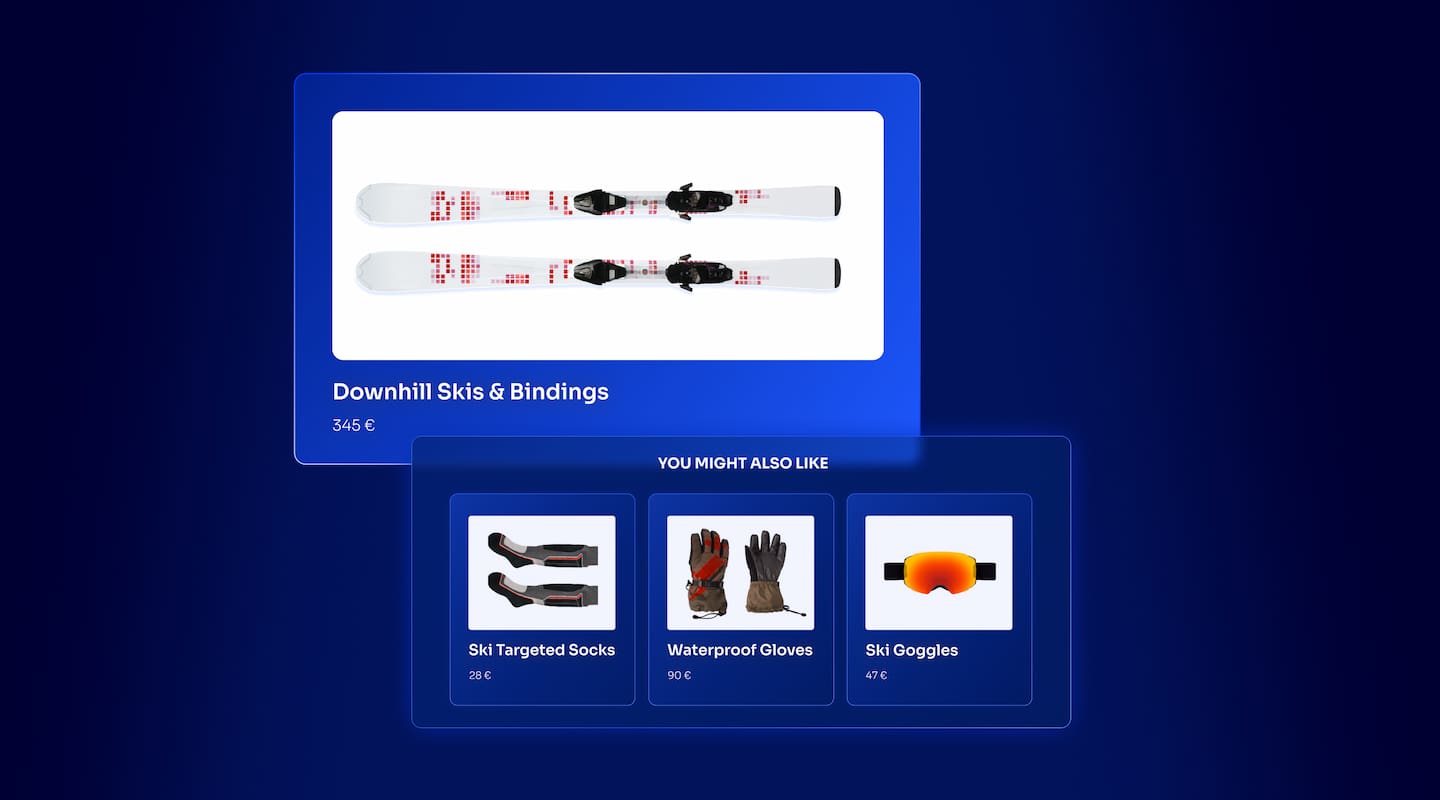
The inviting ecommerce website template that balances bright colors with plenty of white space. The stylized fonts for the headers ...
Search and Discovery writer

Imagine an online shopping experience designed to reflect your unique consumer needs and preferences — a digital world shaped completely around ...
Senior Digital Marketing Manager, SEO

Winter is here for those in the northern hemisphere, with thoughts drifting toward cozy blankets and mulled wine. But before ...
Sr. Developer Relations Engineer

What if there were a way to persuade shoppers who find your ecommerce site, ultimately making it to a product ...
Senior Digital Marketing Manager, SEO

This year a bunch of our engineers from our Sydney office attended GopherCon AU at University of Technology, Sydney, in ...
David Howden &
James Kozianski

Second only to personalization, conversational commerce has been a hot topic of conversation (pun intended) amongst retailers for the better ...
Principal, Klein4Retail

Algolia’s Recommend complements site search and discovery. As customers browse or search your site, dynamic recommendations encourage customers to ...
Frontend Engineer

Winter is coming, along with a bunch of houseguests. You want to replace your battered old sofa — after all, the ...
Search and Discovery writer

Search is a very complex problem Search is a complex problem that is hard to customize to a particular use ...
Co-founder & former CTO at Algolia

2%. That’s the average conversion rate for an online store. Unless you’re performing at Amazon’s promoted products ...
Senior Digital Marketing Manager, SEO

What’s a vector database? And how different is it than a regular-old traditional relational database? If you’re ...
Search and Discovery writer

How do you measure the success of a new feature? How do you test the impact? There are different ways ...
Senior Software Engineer

Algolia's advanced search capabilities pair seamlessly with iOS or Android Apps when using FlutterFlow. App development and search design ...
Sr. Developer Relations Engineer

In the midst of the Black Friday shopping frenzy, Algolia soared to new heights, setting new records and delivering an ...
Chief Executive Officer and Board Member at Algolia

When was your last online shopping trip, and how did it go? For consumers, it’s becoming arguably tougher to ...
Senior Digital Marketing Manager, SEO

Have you put your blood, sweat, and tears into perfecting your online store, only to see your conversion rates stuck ...
Senior Digital Marketing Manager, SEO

“Hello, how can I help you today?” This has to be the most tired, but nevertheless tried-and-true ...
Search and Discovery writer
When you design a search experience for your users/customers, there are three types of relevance you should be interested in, that need to be in balance in order to achieve an effective merchandising strategy.
One the one hand, is the textual relevance, which will pull up results that match what the user is looking for; on the other hand, business relevance allows you to push results that you want your users to see for various reasons such as popularity, higher sale margin, promotional campaign, purchase history. The last one is the contextual relevance, which is based on the users’ context and interaction with the UI/UX.
Search Merchandising ensures that all the necessary business logic is incorporated in the search results that will be presented to the user. There are multiple complementary ways to design an effective strategy for any eCommerce business, such as merchandising popular searches and trending content for seasonal promotions and items; merchandising empty queries and no results stats as well as federated search; pinning, hiding, boosting and burying search results; redirecting searches and showing promotional banners in search results.
Below are examples of the eCommerce companies successfully implementing search merchandizing to drive their sales revenues and conversions:
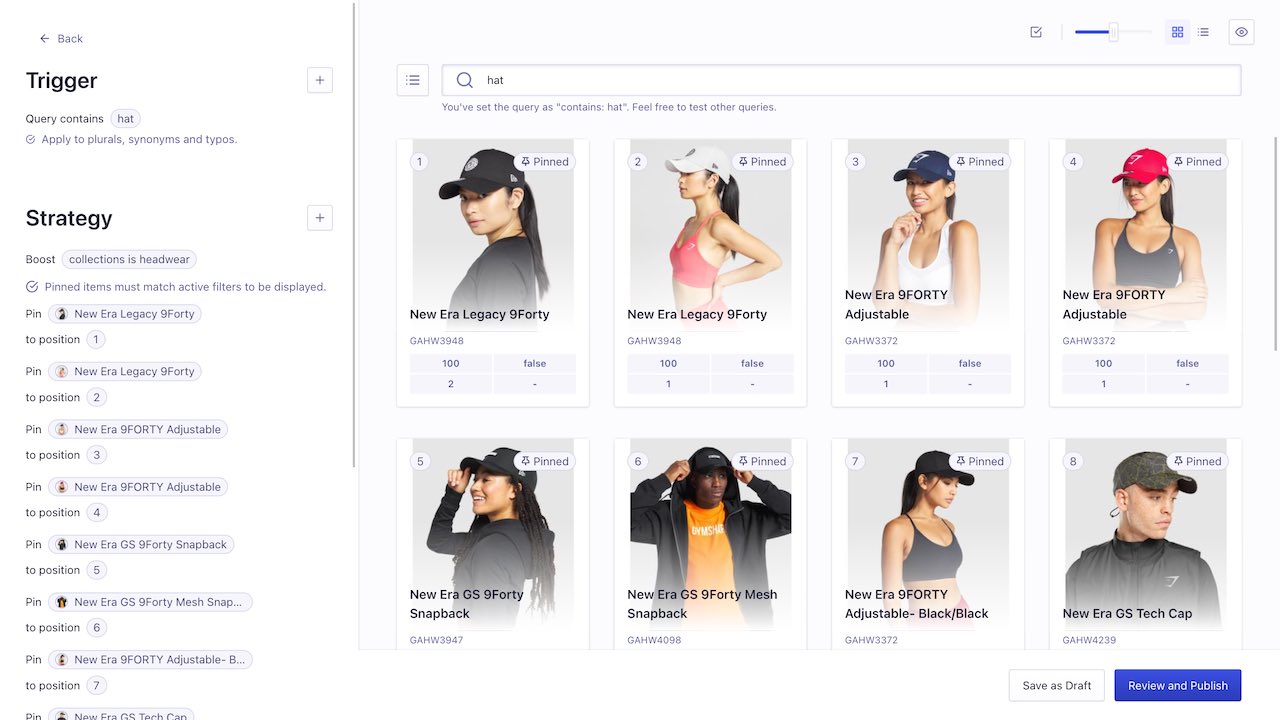
When users search for “hat” on sports retailer Gymshark’s website, selected products are pinned to the top of the search results for more effective merchandising.
Success indicators:
Improving search relevance allowed Gymshark to move best selling products from being buried at the bottom of the search results page to the top of the page. Simultaneously, out of stock products that didn’t sell well were removed from the top of the search results page. In the example below, we can see the change for the “camo” query, that got 11k searches in March 2020:
Previous metrics

Current metrics

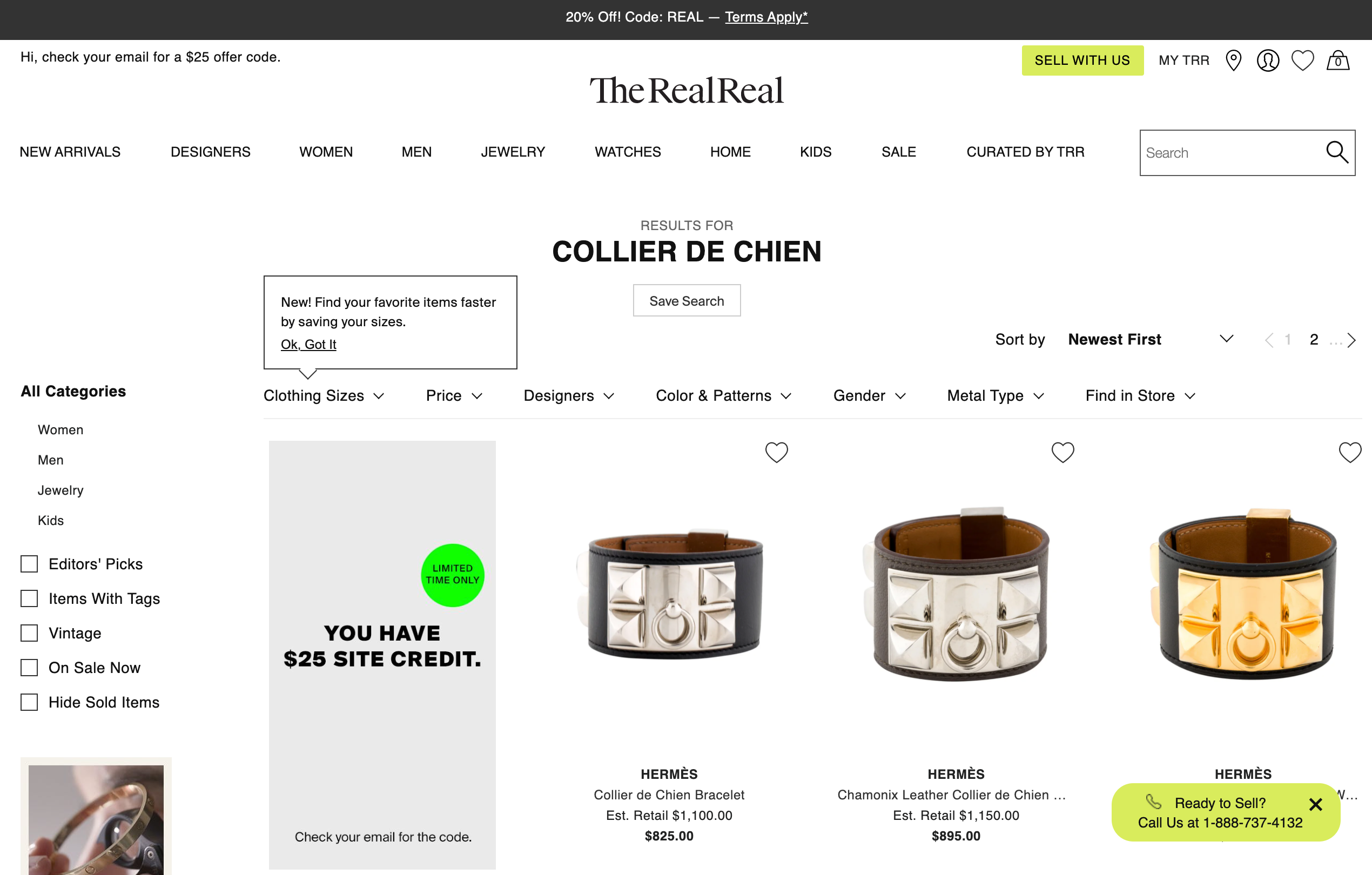
On fashion eCommerce marketplace The Real Real’s website, when a shopper enters a query “collier de chien”, designer brand Hermes is boosted in the search results using Algolia Relevance Rules.
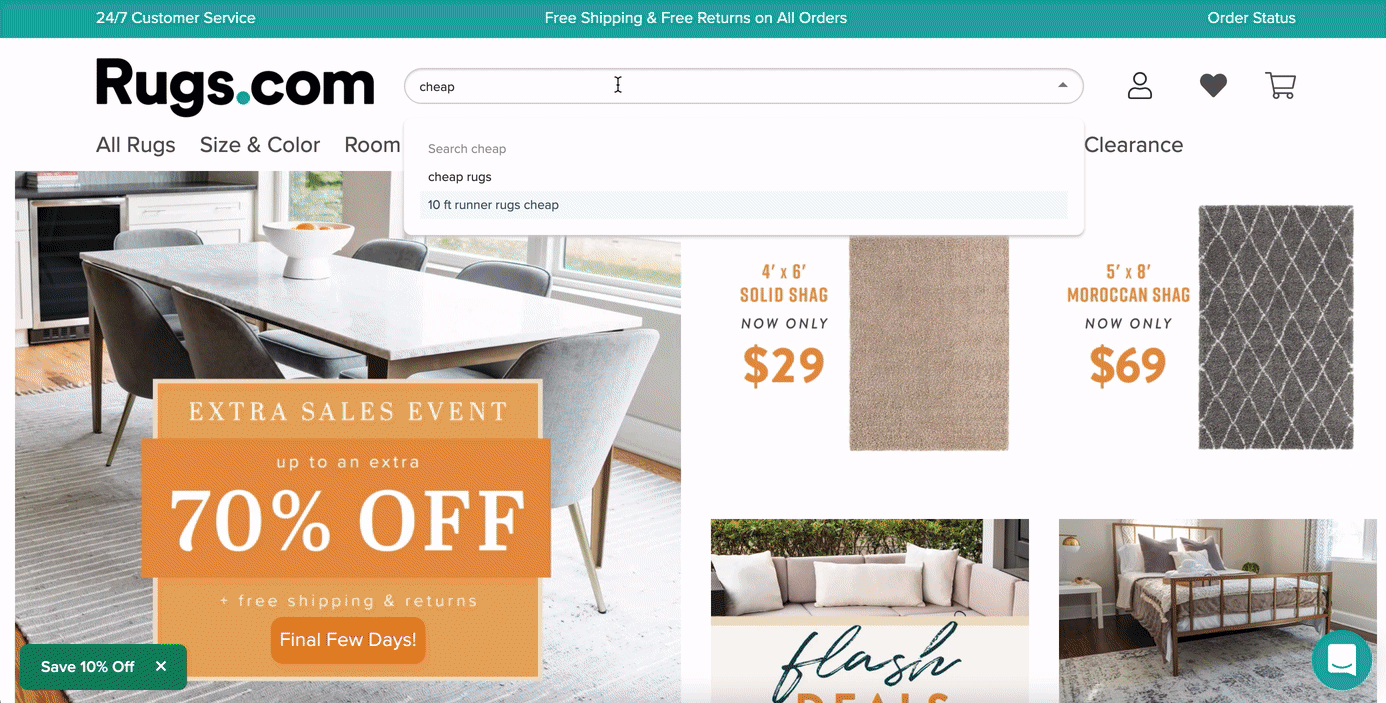
When a user enters a query “cheap” on Rugs.com website’s search bar, products with the cost $300 or less will get boosted on the search result page with Algolia Rules.
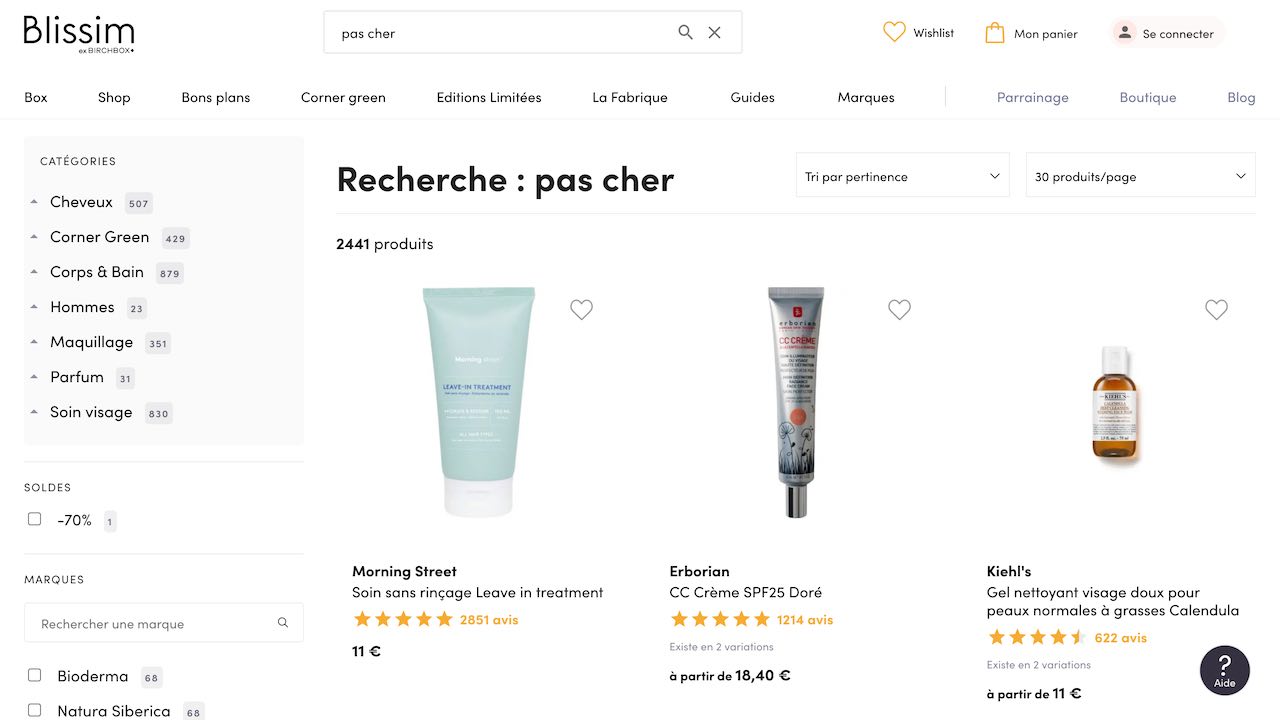
When a user enters a query “pas cher” meaning “cheap” on Blissim website’s search bar, products with the cost 20€ or less will get boosted on the search result page with Algolia Rules.
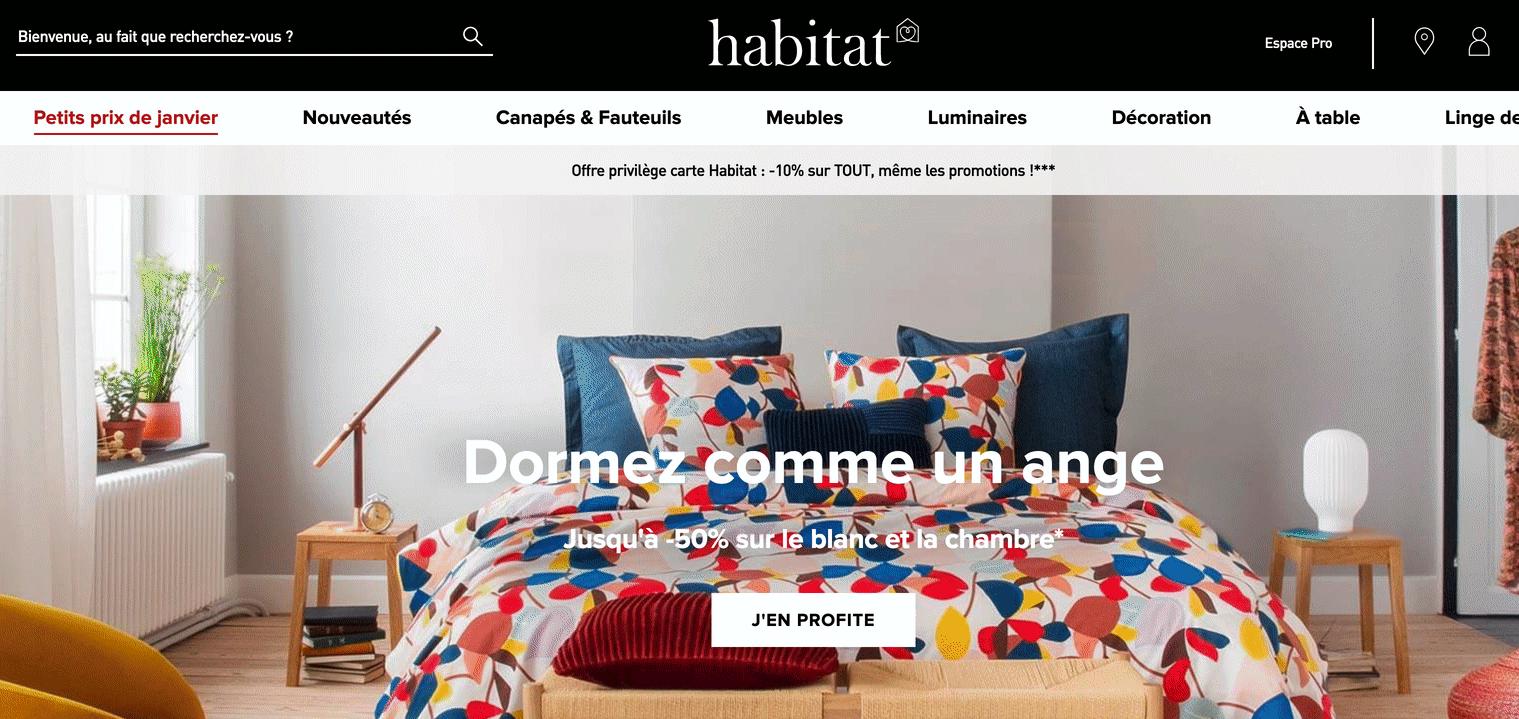
With an empty search query box, French furniture retailer Habitat encourages its site visitors to consider additional ideas and decorating tips by suggesting complementary types of information, such as blogs and FAQs about products. They also directly link to useful pages like shipping or order tracking for better engagement.
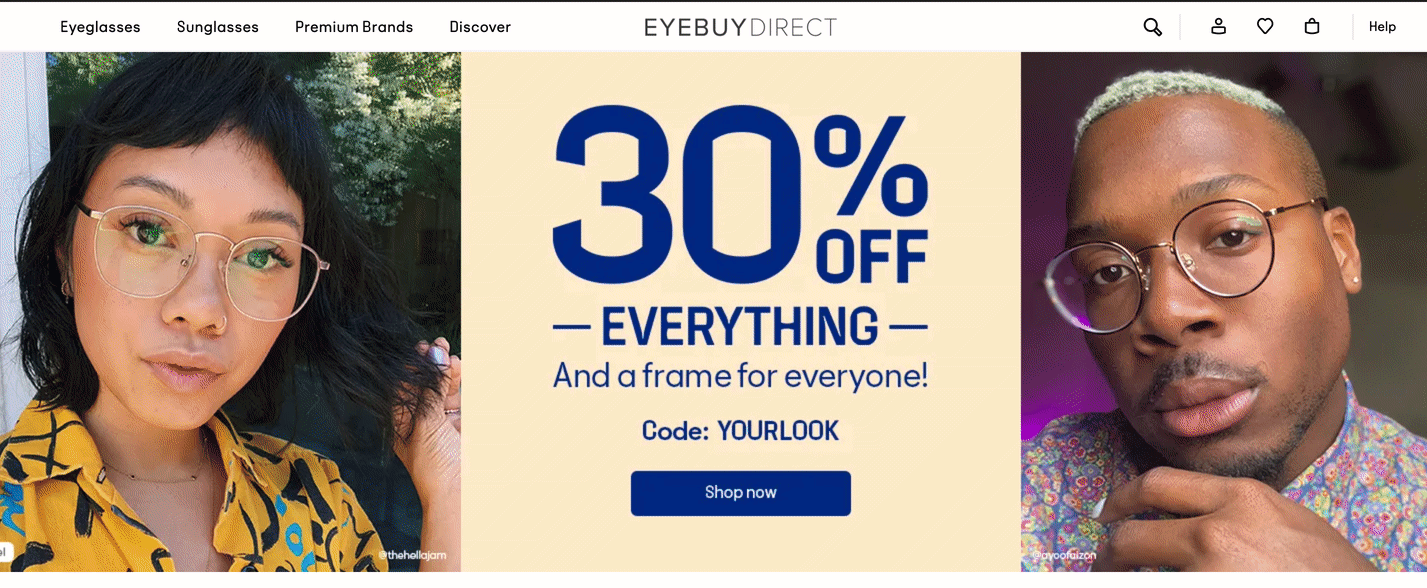
With an empty search box, visitors to the EyeBuyDirect website are presented with information that could help them narrow their shopping search, such as blogs and frequently asked questions about the latest styles in eyeglasses.
Success indicators:
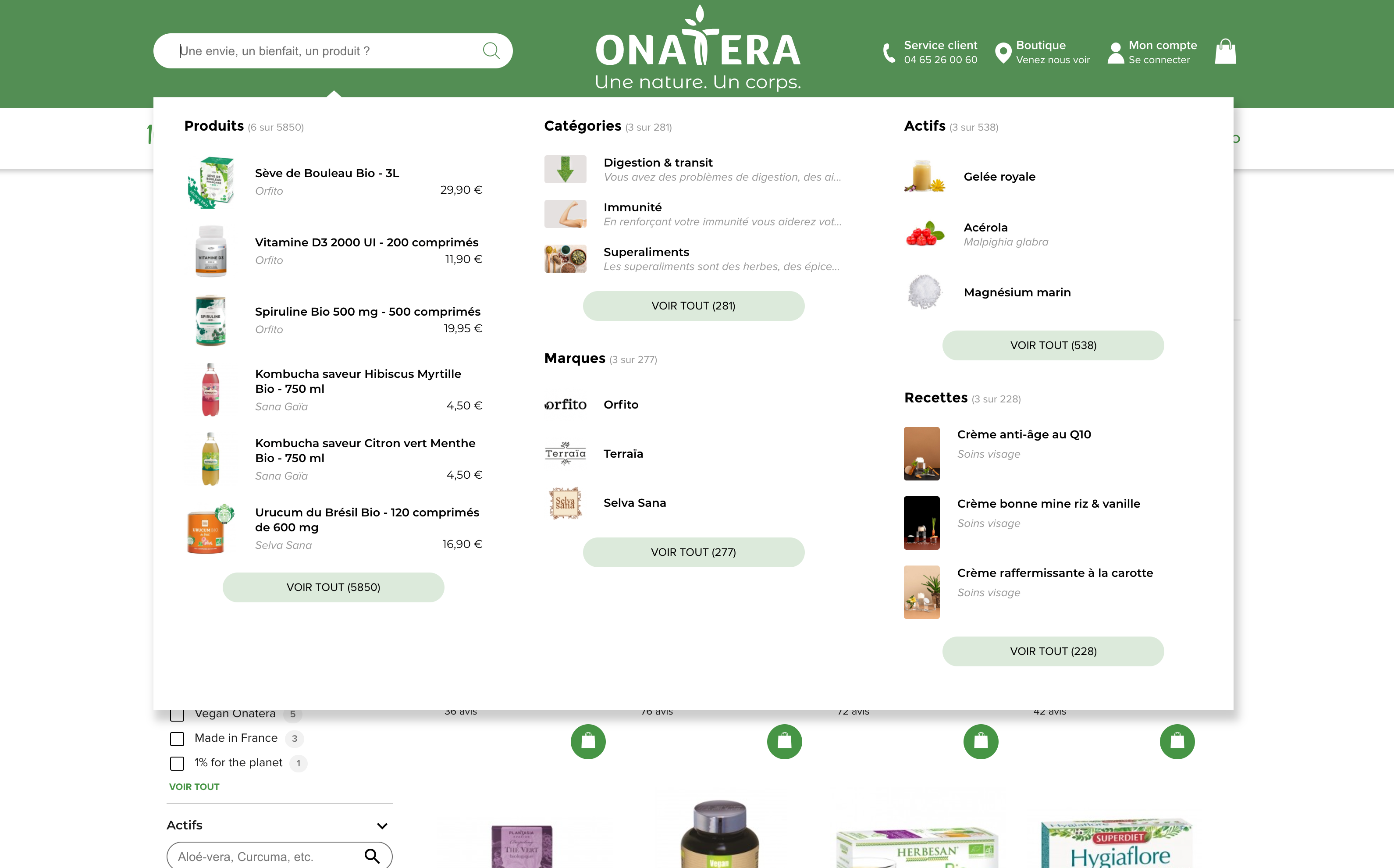
Along with a search box awaiting visitors’ queries about pharmaceutical products, the Onatera site offers complementary types of content, including recipes, promoted brands and other.

When a visitor searches on authenticated luxury fashion consignment marketplace The RealReal and gets no results, the site displays promoted items using relevance rules. The business users are able to update and promote items and categories with no coding, using an intuitive visual interface on the dashboard.
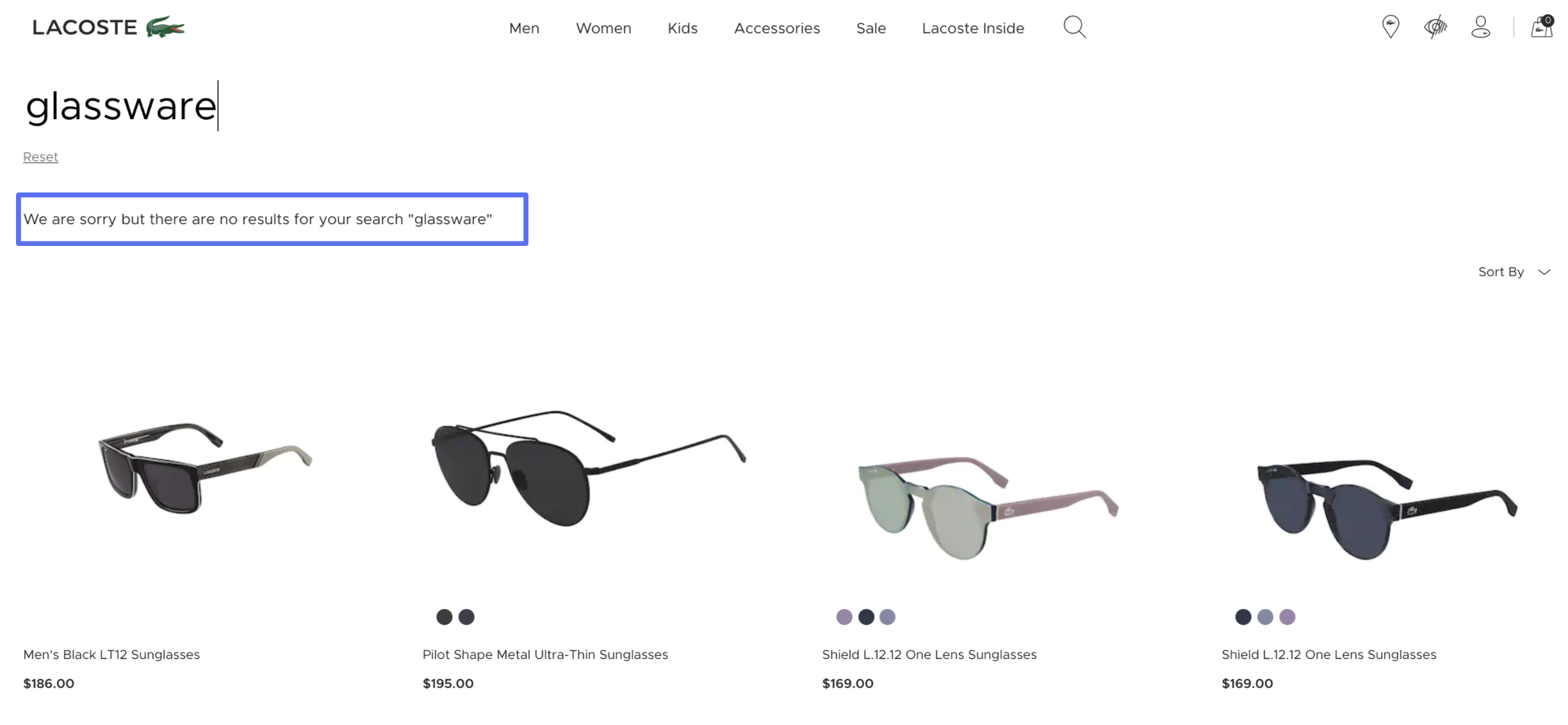
Instead of showing an empty “no results” page, Lacoste guides users by showing related products. For example, when users search for “glassware”, they are shown sunglasses.
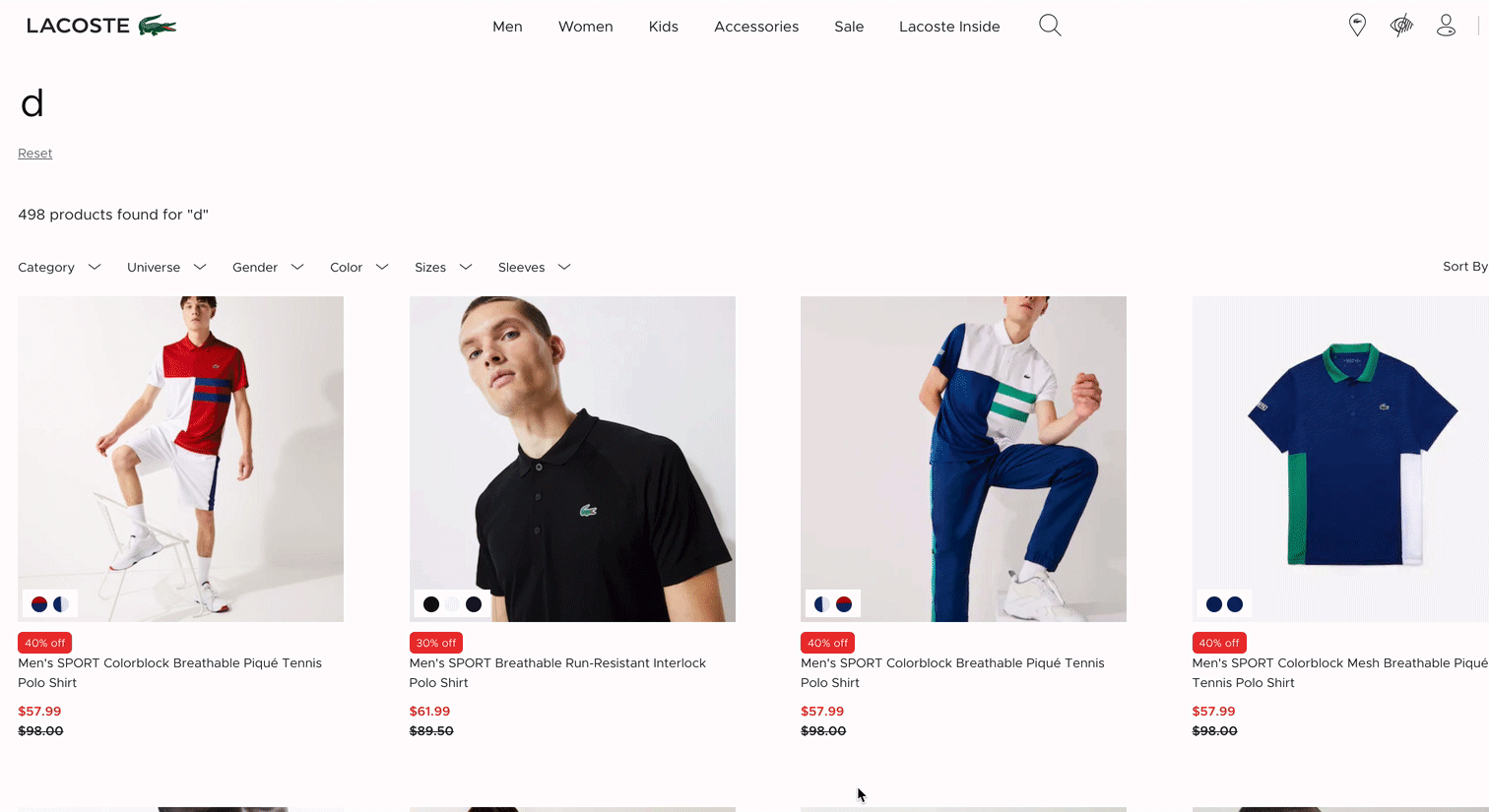
Lacoste uses search merchandising to highlight product collections. Specific search queries show promotional banners promoting seasonal items.
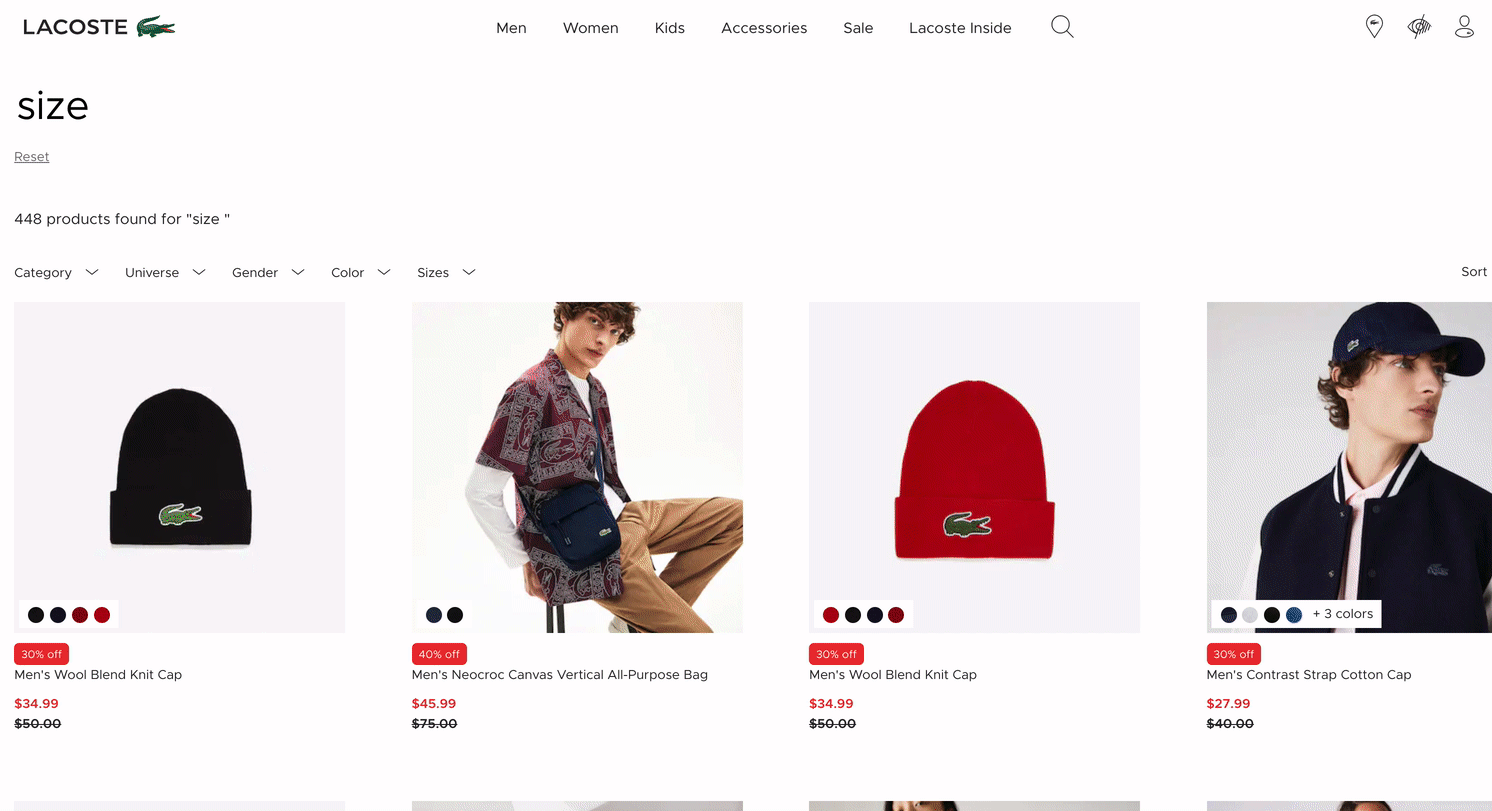
Lacoste uses merchandising to help users find their sizes. When users search for “sizes”, the site shows a banner with a link to a clothing sizing guide.
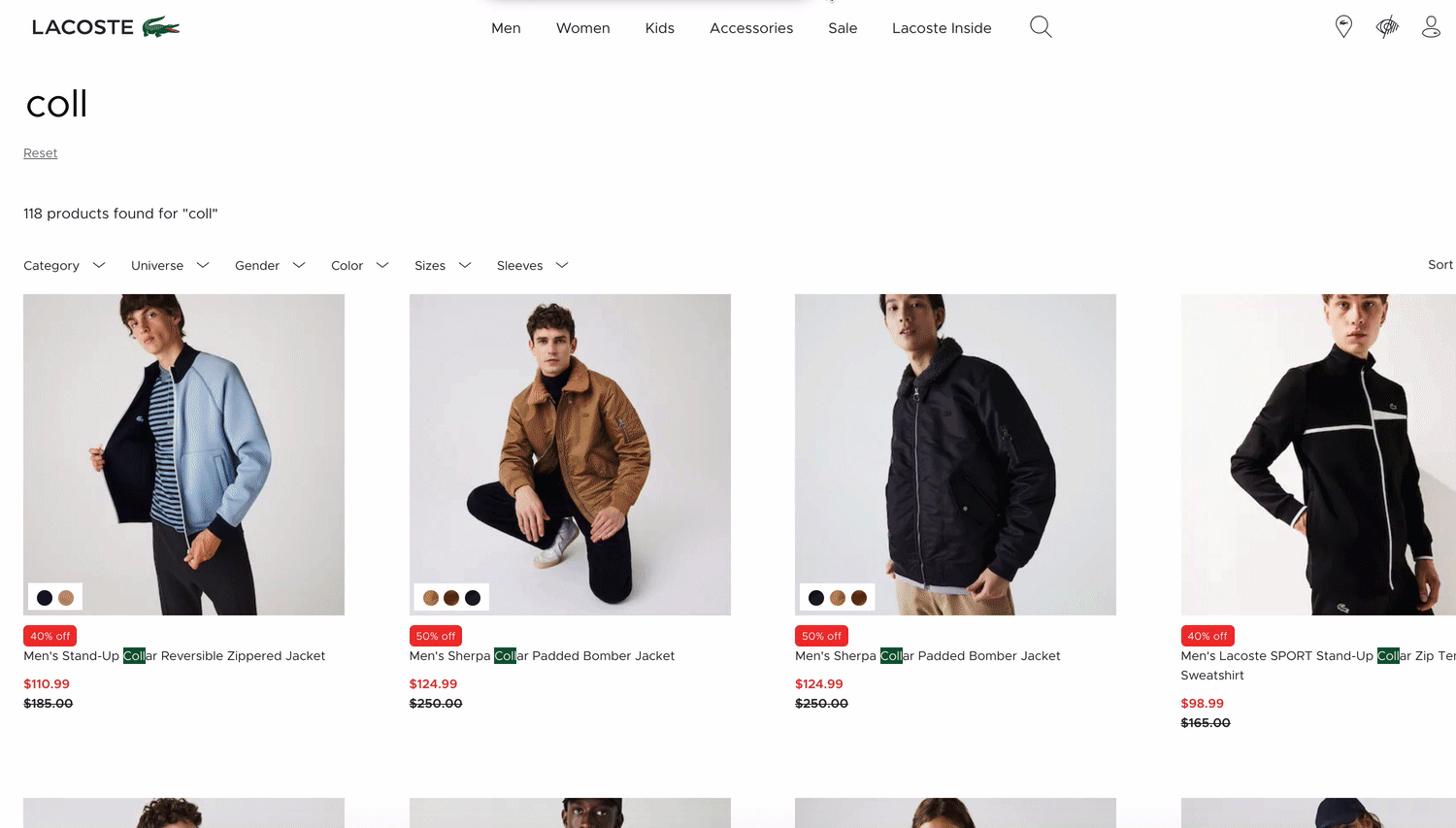
When users enter a specific query on Lacoste’s e-commerce website, large banner ads promote partner collaborations, enticing users to explore.
Success indicators:
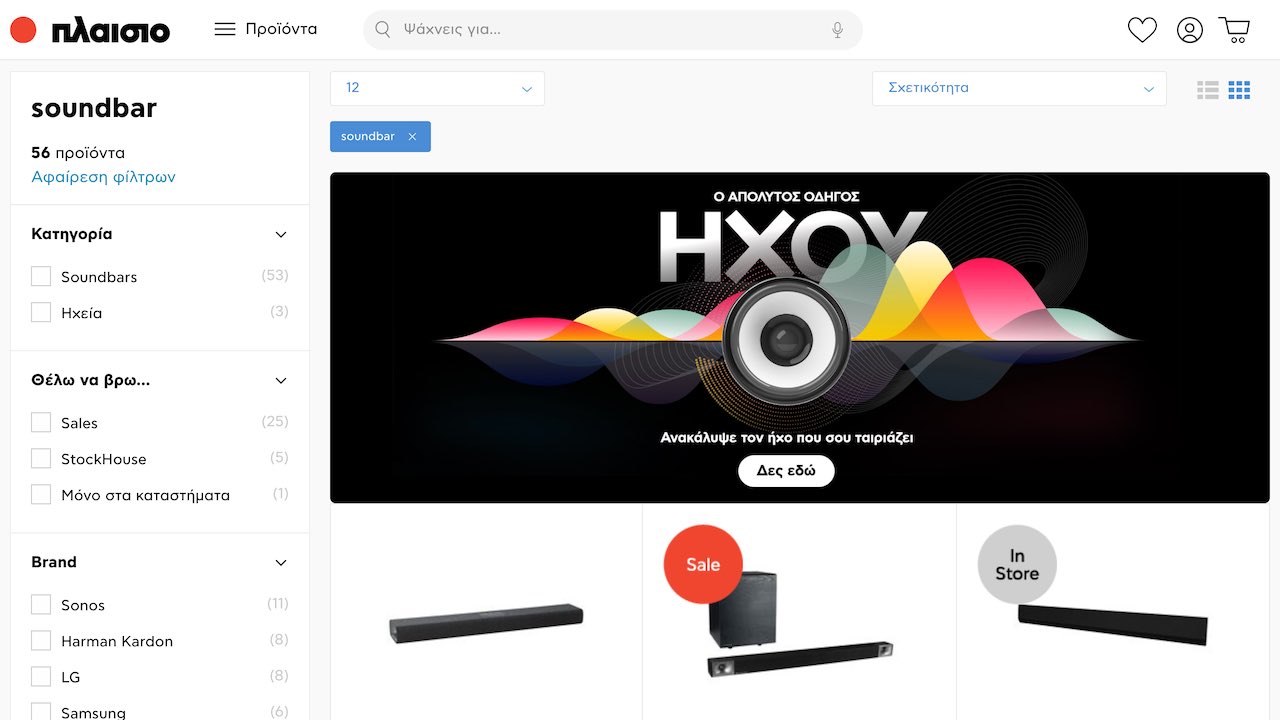
On retailer brand Plaisio’s website, entering a certain search query brings up a banner ad for a related product collection; for instance, searching for “soundbar” triggers a banner promoting several relevant products.

On retailer King Jouet’s website, entering a certain search query brings up a banner ad for a related product collection; for instance, searching for “corolle” triggers a banner promoting several relevant products.
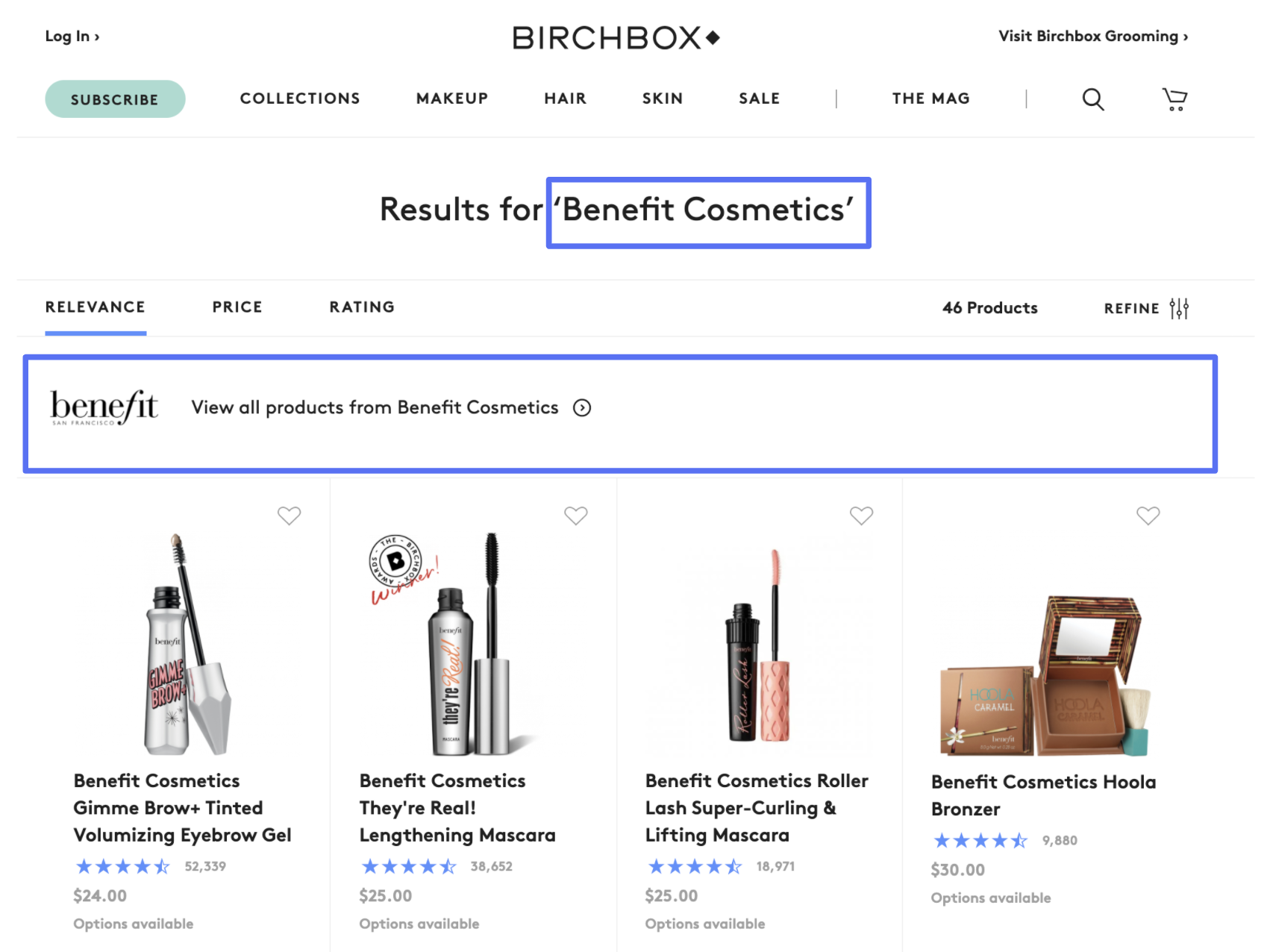
Searching the Birchbox US beauty-subscription website for a brand-name cosmetics item triggers the prominent display (above the user’s search results) of a promotional link to a dedicated brand page in the company’s online store.
The merchandising strategy is the beating heart of any eCommerce business. Setting up a successful implementation and execution plan is vital for a company’s survival in a highly competitive retail industry. When the competitor’s product is just a click away, every search or browse event happening on the website matters. Designing superior shopping experiences for your customers promotes brand loyalty, increases sales and conversion rates, and decreases bounce rate. Improving and optimizing relevance strategy and products prioritization increases search use, and as a result leads to exponentially higher sales contributions from search.
Read more about how to boost online sales with Category merchandising.
Product Manager
Our experts will audit your search for free and find business opportunities hidden in your search

Powered by Algolia Recommend